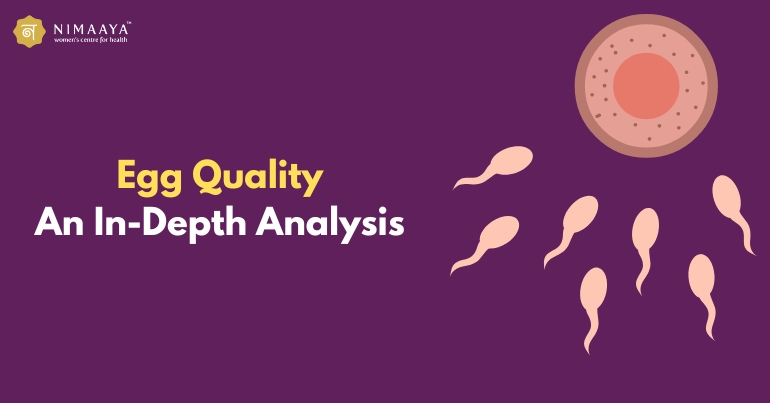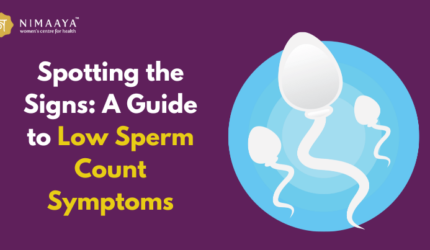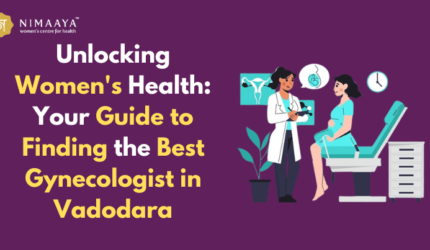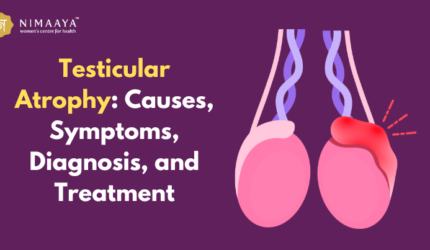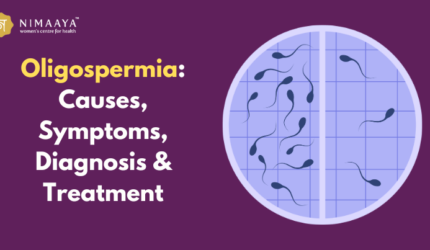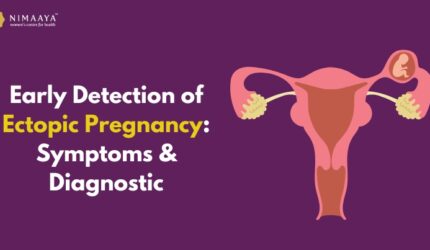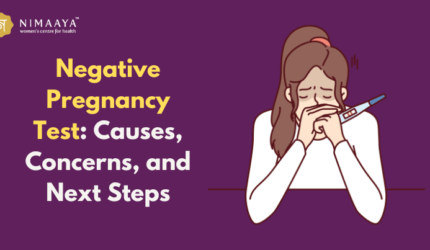Egg Quality: An In-Depth Analysis
The quality of the eggs produced by a female is a very important factor regarding her ability to conceive and carry a fetus to term, as they play a crucial role in reproduction. Recognizing issues concerning egg quality and the science of it, as well as interventions that can help, can allow individuals as well as couples to cope more easily with the challenges of infertility. The present article addresses the issue of egg quality and its biological basis, the components that determine it, and ways to improve it.
The Biology of Egg Quality
Egg quality determines the health of the oocyte in terms of genetics and the cellular content. An egg of good quality is one that is euploid and capable of sustaining fertilization, embryonic development, and the implantation processes in the womb.
Composition of Chromosomes
Human eggs are haploid cells meaning they hold half the chromosomes required to form a complete human being, making its chromosomal integrity very important in developing healthy embryos. Any abnormality in the number or structure of chromosomes is referred to as aneuploidy which may result to pregnancy failure through either implantation or miscarriage or the birth of a malformed baby.
Mitochondrial Function
Mitochondria are organelles in the cells that make energy and are found in plenty in the oocytes. Energy production by mitochondria is vital for resources that support egg growth and maturation, fertilization processes, and the growth of very young embryos.
Cytoplasmic Integrity
The cytoplasm harbors functional proteins, RNA, and other vital materials that assist the maturation process of the oocyte and the further development of embryos. Any variation in the level of these factors may adversely affect the quality of the eggs.
Read More: Understanding Oocytes: The Foundation of Female Fertility
Factors Influencing Egg Quality

Numerous factors, both internal and external, influence egg quality which some of them are linked with age and lifestyle.
1. Age
Among all factors, age represents the most reliable determinant when it comes to the quality of the eggs. Some females are born with a set of eggs, and this number declines throughout the life of that individual with both quality and quantity decreasing. Beginning from mid-thirties onwards, a significant increase in the abnormalities in the chromosomes of the eggs occurs and this worsens after 40 years.
2. Lifestyle Factors
- Diet and Nutrition: The quality of the eggs can be adversely affected by the lack of nutrients such as folic acid, vitamin D and omega 3 fatty acids.
- Alcohol and smoking: In the case of women, smoking comes with toxins such as nicotine and cadmium that harm the eggs. Drinking alcohol too much may lead to imbalance in hormones thus causing infertility.
- Exercise: There are extremes in the exercises undergone by women that may lead to an imbalance in hormones responsible for egg maturation and also to those who do not practice any exercises.
3. Environmental Toxins
The intake of agricultural chemicals, industrial metals, and EDCs, such as bisphenol A (BPA) can cause adverse effects on the ovaries and the quality of the eggs produced.
4. Medical Conditions
- Polycystic Ovary Syndrome (PCOS): This condition leads to a disruption in the normal cycles of ovulation as well as the quality of eggs produced.
- Endometriosis: This disorder leads to inflammation and oxidative stress in the ovaries and this can compromise egg maturation.
- Other auto-immune diseases: Diseases such as lupus and even hyperthyroidism can have negative impacts on ovarian function.
5. Oxidative Stress
Oxidative stress is the result of free radicals and antioxidants dyshomeostasis in the organism. It causes the breakdown of the DNA and the overall structural matrix of the oocytes thus reducing their chances of fertilization.
Measuring Egg Quality
There is no clear-cut test to determine the quality of eggs, instead the fertility experts rely on the methods which entail a rather indirect evaluation of the ovarian functioning and reproductive potential:
Anti-Mullerian Hormone or AMH Testing
AMH levels tell us the amount of ovarian reserve the woman has but cannot tell how fertile her eggs are.
Antral Follicle Count (AFC)
Small Ovarian Follicles Are counted during ultrasound, which helps in determining the functioning of the Ovaries.
Ovarian Stimulation Response
In ART (assisted reproductive technology) like IVF, the quantities and their grades of the eggs harvested may also relate indirectly to the diagnosed clinical issues.
Preimplantation Genetic Testing (PGT)
Egg quality can be inferred from PGT, the testing done on embryos formed after IVF to check for chromosomal abnormalities, even before implantation.
Strategies to Enhance Egg Quality
Optimizing ovum quality will encompass making lifestyle changes, using medication and sometimes ART.
1. Lifestyle Changes
Balanced Nutrition
Nutrition rich in antioxidants, vitamins and healthy fats promotes egg health. Egg quality improvement food such as leafy vegetables, berries, nuts and fatty fish are useful.
Regular Exercise
Periodic moderate exercise helps to maintain the hormonal levels in balance and decreases the oxidative stress.
Stress Management
There is an upsurge in stress hormone (cortisol) levels due to chronic stress, which may affect Inhibition of Follicle Maturation. Things such as yoga, meditation, or therapy can alleviate this.
2. Medical Interventions
Supplements
Egg quality supplements include Coenzyme Q10 (CoQ10), DHEA, melatonin among other supplements. CoQ10, for instance, enhances energy production in cells.
Hormonal Therapies
Hormones can be administered to promote normal ovulation and create a good condition for maturing of eggs.
3. Assisted Reproductive Technologies (ART)
- IVF : IVF treatment makes it possible to collect more eggs which enhances chances of selecting and using good quality eggs.
- Egg Freezing: Cryopreservation of immature eggs at a younger age can help preserve their quality.
- Oocyte Donation: Where egg quality is very poor in women, egg banks can be used.
4. Avoidance of Toxins
Avoiding contaminants in food, water, and cosmetic products is beneficial for the ovaries.
Research and Emerging Trends
Researchers can adopt multiple innovative methods to enhance the egg quality and overall reproductive results:
Mitochondrial Replacement Therapy (MRT)
This experimental procedure replaces the non-functional mitochondria with the healthy ones from the donor.
Artificial Intelligence in IVF
AI algorithms evaluate quality of eggs and embryos and thus improves selection.
Stem Cell Therapy
Studies are being conducted on the restoration of ovarian function by stem cells with optimistic prospects for returning fertility.
Conclusion
The quality of eggs produced by women is a crucial aspect of their fertility and an important factor in the process of successful pregnancy. Several factors such as age, lifestyle, and health conditions affect it, but it can be improved. Only certain combinations of behavioural therapies, medical interventions, and assisted reproductive technologies make it possible for many individuals to conceive a child.
To support you and for complex reproductive treatments, Nimaaya IVF Center provides fertility health services. Professionals like Dr. Yuvrajsingh Jadeja at Nimaaya present personalized strategies so that one receives the most appropriate advice and care based on their situation.

